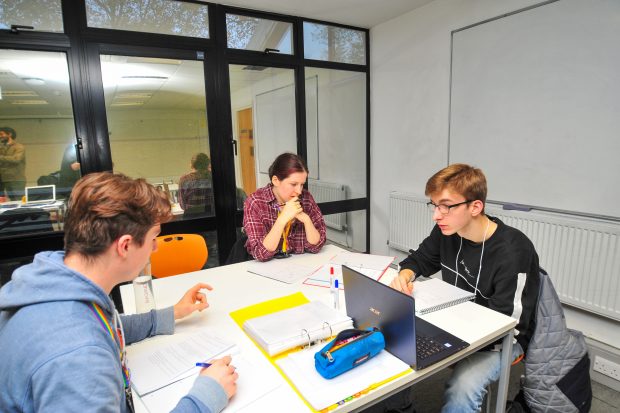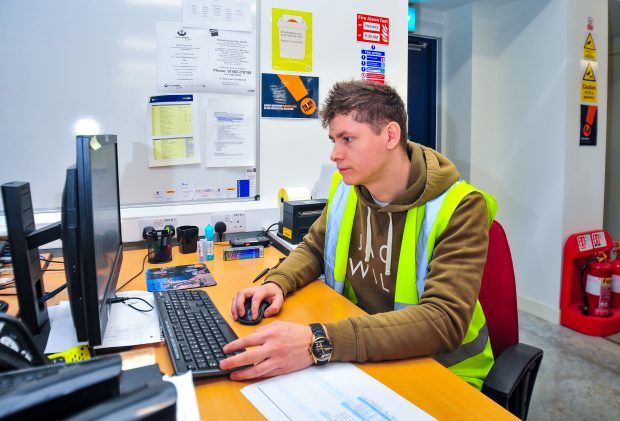
Paul Joyce, Deputy Director for Further Education and Skills, discusses our further education and skills pilot visits.
In July, we announced that we would be carrying out visits across all the areas we inspect this autumn – schools, further education and skills, early years and children’s social care.
The visits are not inspections and won’t result in a graded judgement. They have a simple but important aim – to reassure parents, learners, employers and government about what providers are doing to get education and training back up and running, and to make sure learners are safe.
Over the past fortnight, we’ve been piloting these visits across further education and skills providers, testing our approach before the full visits begin. I’ve been struck by just how receptive the sector has been to the visits and how well providers have engaged with the process.
Learning from our pilots
The pilots were about making sure that our approach is sound. We’ve done 14 pilot visits, covering a range of providers at all grades, across each of Ofsted’s regions.
We visited independent learning providers (ILPs), including one major national provider, community learning and skills providers, further education and sixth-form colleges, and an independent specialist college. Thirty inspectors, around a third of our Her Majesty’s Inspectors (HMI) workforce, took part. These inspectors are now back in their regions, sharing their experiences and helping to train their colleagues.
Overall, the pilots have been very successful. They show that our methodology works and that the visits work in practice, despite the unusual circumstances we all face. We’re confident that we can carry out the visits safely and with minimum disruption to a provider’s day-to-day business.
Our inspectors have been made to feel very welcome. Those providers that took part really understood our rationale and embraced the visits as a constructive and collaborative process. Leaders and other staff were rightly proud of what they’d achieved and what they had done to get learners up to speed after so long away. Some found the visit a relief, others said it was reaffirming – a chance to have their hard work acknowledged.
Safety is our priority
The pilots also allowed us to see what the visits would be like with social distancing rules in place. Arrangements will obviously vary from provider to provider, so our visit teams will abide by whatever measures individual providers have put in place to keep learners safe. The safety of our staff, learners and providers’ staff is, of course, our utmost priority.
The following example from one large college group gives an indication of how a visit can work in practice. Our 2 visiting inspectors were set up in a large meeting room that allowed for social distancing. They stayed in the room for the whole day, while small groups of senior leaders, teachers and learners joined them for discussions – around 9 meetings over the course of the visit. The room was cleaned between meetings. We did not make any learning observations, carry out deep dives or move around the college.

What will the visits focus on?
Visits will be based around 3 themes and will comprise a set of conversations with leaders and staff. First, we’ll ask about the strategic actions taken to maintain the curriculum or get it back up and running. Second, we’ll discuss what you have been doing operationally to deliver online and face-to-face learning. Finally, we will want to talk about safeguarding: how are you making sure that learners are safe in these unusual circumstances. We’ll summarise these discussions in a published report, although we will not publish the reports for our pilot providers.
The visits will take place over 2 days, but these will be shorter days – starting later than an ordinary inspection and finishing earlier. This frees up providers’ staff in the mornings and keeps disruption to a minimum.
The way forward
There’s no doubt that colleges and other providers have been up against it since the lockdown in March. In the ILP world (largely apprenticeships and adult training), the situation is very tough. Some providers have ceased training altogether. We also know that some apprentices haven’t been able to return to their jobs after furlough.
We are acutely aware of how difficult the past few months have been and our visit teams are sensitive to this. We are not here to make life difficult. Ultimately, we want to understand the challenges that the sector faces, so we can help government and policymakers understand them too. We hope that our published reports will be useful to providers as they consider their own approaches, with the reports sharing good and innovative practice.
Given the need for more information about effective online learning, we’ll also be using our visits to add to the debate about what works. In July, we published some interim findings from our online learning review. The visits will build on this work and we hope to publish some more findings early next year.
It’s really good news that those taking part in the pilots were positive about their experience. This, combined with the fact that parents, learners and employers want to know how well prepared providers are, reinforces the importance of our visits. And while it’s a small sample, our pilots suggest that the further education and skills sector is more than rising to the challenges of these highly unusual times.
A version of this blog post was first published by FE Week. Follow Ofsted on Twitter.
1 comment
Comment by Terry Pearson posted on
I am pretty sure that most FES organisations are aware that when it comes to these visits the inspectorate is ‘not here to make life difficult.' On the contrary, Ofsted want the visits to run a smoothly as possible. HMI are somewhat desperate to gain an understanding of the challenges the sector is facing, after all they ran away from supporting providers during the pandemic in March.
As a consequence, HMI have very little to no personal experience of leading or teaching in during the crisis so it is now crucial that they extract as much information as possible from providers which can then be shared with other inexperienced HMI in preparation for the upcoming full visits. Unsurprisingly therefore, FES organisations are gaining very little from these visits. Ordinarily HMI bring much expertise to meetings with staff but these circumstances are extraordinary and HMI have no personal experience of working in FES organisations during the pandemic to bring to the discussions. Whilst inspectors may be learning a great deal for themselves when visiting providers, perhaps the best measure of success is to determine what and how much FES organisations are learning from them.
Nonetheless, it is worth noting that the inspectorate recognises that colleges and other providers have been up against it since the lockdown and much hard work has been done by providers in a situation that is very tough. Significantly, the pilot visits confirm as many would expect, that the further education and skills sector is more than rising to the challenges of these highly unusual times.